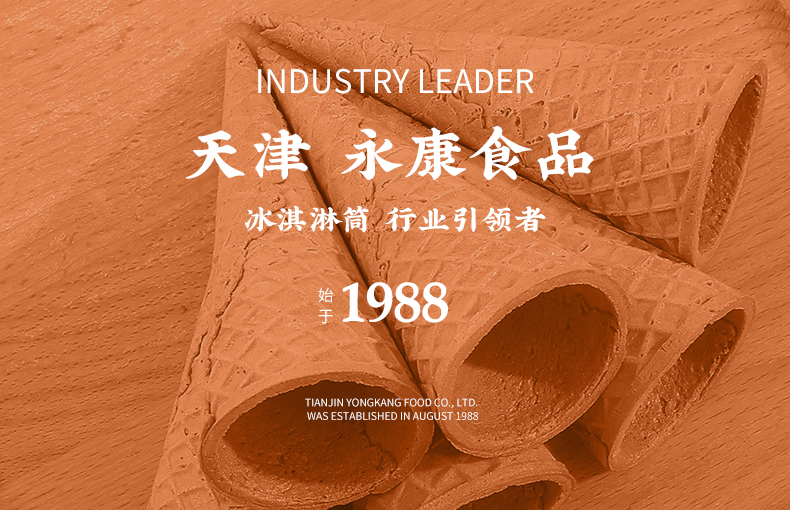Ice cream cone
We have more than 30 years of production technology, the use of advanced production equipment to ensure that the appearance of each crisp cylinder is complete, the pattern is clear. We also have the most stringent inspection process to ensure that the quality of each cylinder is up to standard. Our logistics is transported by professional logistics companies to ensure the quality of products in transit.
Our crispy cone is positioned in the middle and high-end ice cream market, Wall's(China), Yili, Mengniu are our long-term partners. The 18 degree crisp cone independently developed by our company is specialized in Italian handmade ice cream.
Yongkon looks forward to cooperating with you!

Crispy Product Series,Creamy Aroma Crispy Cone,Coffee Flavored Crispy Cone,Chocolate Crunchy Cone
Tianjin Yongkang Food Co., Ltd , https://www.yongkangfood.com